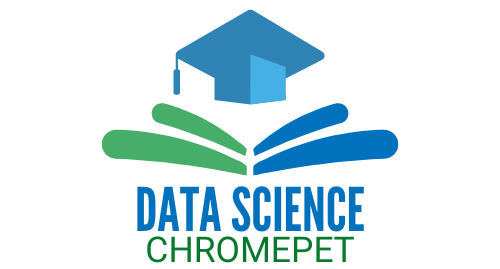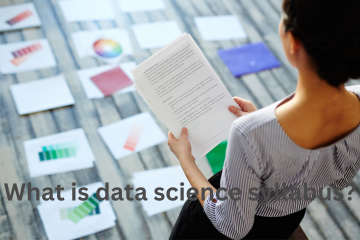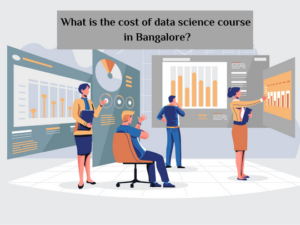Table of Contents
ToggleWhile the specific syllabus for data science courses can vary across institutions, the following is a comprehensive overview of the topics typically covered in a data science syllabus. This syllabus aims to provide a well-rounded understanding of the foundational concepts, techniques, and tools used in data science.
Don’t delay your career growth, kickstart your career by enrolling in this Best Data Science in Pune with 360DigiTMG Data Science course.
Introduction to Data Science
Overview of data science and its applications
Historical context and evolution of data science
The data science lifecycle and workflow
Ethical considerations and data privacy
Mathematics and Statistics for Data Science
Descriptive statistics: measures of central tendency, variability, and distribution
Probability theory: probability distributions, conditional probability, and Bayes’ theorem
Inferential statistics: hypothesis testing, confidence intervals, and p-values
Linear algebra: matrices, vectors, matrix operations, and eigenvectors
Calculus: differentiation, optimization, and gradient descent
Programming for Data Science
Introduction to programming languages for data science (e.g., Python, R)
Variables, data types, and control structures
Data manipulation and cleaning using libraries (e.g., Pandas, dplyr)
Data visualization with libraries (e.g., Matplotlib, ggplot2)
Become a Data science expert with a single program. Go through 360DigiTMG’s in Best Data Science in Hyderabad. Enroll today!
Introduction to SQL for data manipulation and querying
Data Collection and Pre-processing
Data acquisition techniques: web scraping, APIs, databases
Data cleaning and pre-processing: handling missing data, outliers, and inconsistencies
Data integration and transformation: merging datasets, reshaping data, and feature engineering
Exploratory data analysis: data visualization, summary statistics, and data profiling
Machine Learning Fundamentals
Supervised learning: linear regression, logistic regression, decision trees, and ensemble methods (e.g., random forests, gradient boosting)
Unsupervised learning: clustering algorithms (e.g., k-means, hierarchical clustering), dimensionality reduction (e.g., principal component analysis, t-SNE)
Model evaluation and validation: cross-validation, performance metrics (e.g., accuracy, precision, recall, F1 score)
Handling imbalanced datasets, feature selection, and feature importance
Advanced Machine Learning Techniques (approx. 500 words)
Deep learning: neural networks, convolutional neural networks (CNNs), recurrent neural networks (RNNs), and transfer learning
Natural language processing (NLP): text pre-processing, sentiment analysis, text classification, and language generation
Learn the core concepts of Data Science Course video on Youtube:
Time series analysis: time series forecasting, ARIMA models, and seasonal decomposition
Reinforcement learning: Markov decision processes, Q-learning, and policy gradients
Big Data and Distributed Computing
Introduction to big data concepts: volume, velocity, and variety
Distributed computing frameworks: Hadoop, Spark, and MapReduce
Also, check this Best Data Science course, to start a career in Best Data Science in Chennai
Working with big data tools and platforms: Apache Hadoop, Apache Spark, and cloud-based services
Scalable data processing, parallel computing, and distributed machine learning
Data Visualization and Communication
Principles of effective data visualization
Data visualization libraries and tools (e.g., Matplotlib, ggplot2, Tableau)
Dashboard design and interactive visualizations
Communicating data insights to non-technical stakeholders
Experimental Design and A/B Testing
Principles of experimental design and hypothesis testing
Designing experiments: control groups, randomization, and sample size determination
A/B testing: planning, implementation, and analysis
Interpreting and communicating experimental results
Ethical and Legal Considerations
Data ethics and responsible data use
Privacy, security, and confidentiality considerations
Legal and regulatory frameworks (e.g., GDPR, CCPA)
Bias, fairness, and interpretability in machine learning models
Capstone Project
Want to learn more about Dara scientist expert? Enroll in this Best Data Science in Bangalore to do so
Culminating project applying data science techniques to solve a real-world problem.
Project planning, data acquisition, analysis, and interpretation
Presenting project findings and recommendations
Conclusion
This data science syllabus covers the fundamental concepts and techniques necessary to become proficient in the field. It provides a strong foundation in mathematics, statistics, programming, and machine learning, along with practical skills in data collection, pre-processing, and visualization. Moreover, it emphasizes the importance of ethics, communication, and critical thinking in data science. While specific courses may vary, this syllabus serves as a comprehensive guide to the core topics typically covered in data science curricula, preparing students for careers in this rapidly growing and evolving field




